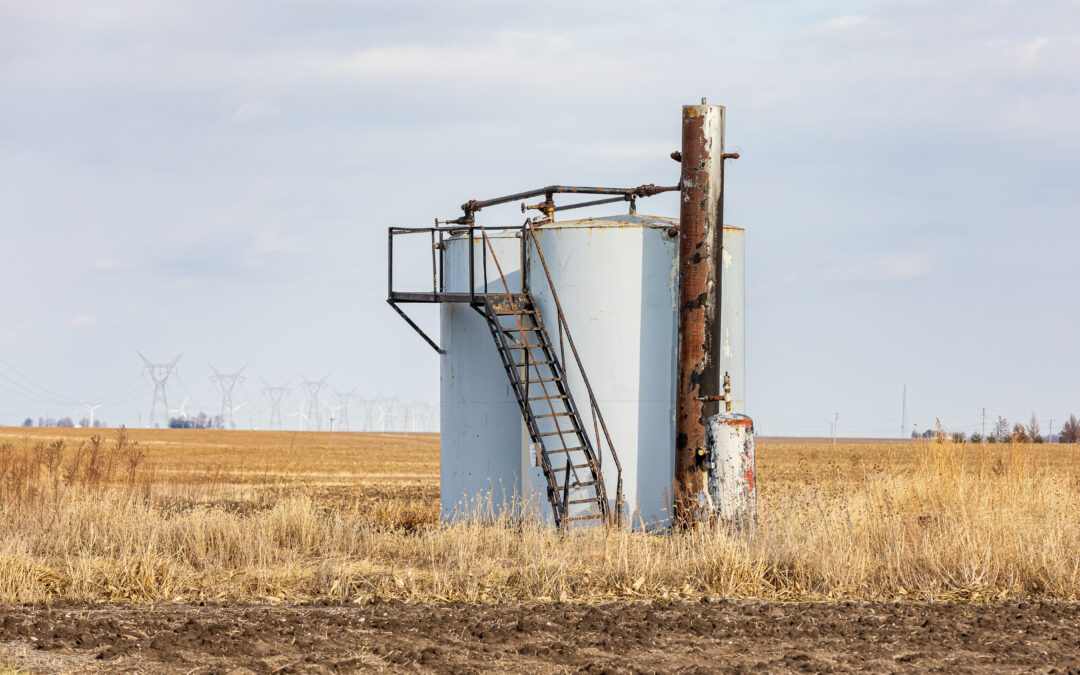Louisiana landowners face costly soil contamination and groundwater damage from old oilfield waste pits, pipelines, and wells. Legacy Litigation in Louisiana gives property owners a path to hold operators responsible and secure full cleanup. Affected landowners may qualify for full remediation under Act 312 by proving fault and historical contamination. In this blog, we explain the steps property owners and their attorneys take to build strong Legacy case documentation and secure cleanup and compensation.
Building a Case for Legacy Litigation
Under Louisiana law (Act 312, LSA-R.S. 30:29), landowners may file lawsuits to force cleanup and recover costs. Courts apply a “preponderance of evidence” standard. But what does this evidence look like for landowners and how can we establish liability? Let’s take a look at the most common initial steps for proving fault.
Identifying Past Pollution Sites and Soil Contamination Testing
From the 1940s through the 1980s, many oil companies used unlined pits to discard produced water. Over time, this practice led to saltwater, hydrocarbons, and heavy metals seeping into soil and groundwater. Identifying these areas often requires reviewing old lease records, aerial photographs, and regulatory filings to map historic disposal pits and well sites.
Chain of Title and Operator Records
Liability often depends on identifying the companies that operated on or near the property. Attorneys trace leases and assignments to determine which entities may have been liable for polluting the property. Landowners must document the chain of title and link each operator to disposal practices that harmed the land.
Expert Testimony and Environmental Assessments
Environmental scientists and engineers testify on causation, cleanup standards, and long-term risks. Their reports explain the science in clear terms — for example, how the use of unlined pits led to soil or groundwater contamination. Expert testimony strengthens Landowner Environmental Claims by explaining complex data so judges and juries can understand the impact.
Contractual Cleanup Obligations
Many oil and gas leases include clauses requiring operators to restore the land. Courts review these contracts to decide if a party must fund full remediation. Proving an express cleanup promise in a lease can boost a landowner’s case. Attorneys analyze agreements to show when a company agreed — formally or by custom — to restore the site.
Preparing for Litigation and Beyond
Once liability is established and a complaint is filed, the court process may include depositions, expert hearings, and settlement talks. Even after judgment, cleanup plans must be approved and enforced. Talbot, Carmouche & Marcello remains involved until site remediation meets regulatory and court standards. We also help landowners monitor post-cleanup activities to ensure permanent protection.
Time is of the Essence
Now is the time to act. Under current Louisiana law (Act 312), landowners enjoy strong rights to a full cleanup and pursue compensation for contamination. But a new law (Act 458) takes effect on September 1, 2027. After that date, your rights will suffer significantly.
Legacy Litigation claims are not simple “fill-in” forms. You should contact an attorney several months before the September 1, 2027 deadline. Otherwise, you can leave your attorney scrambling – and you risk losing valuable rights. Attorneys trace leases, assignments, and operator records back decades. This “chain of title” work often involves courthouse visits, deed searches, and reviewing corporate filings. That process can take months, especially when records are old or incomplete. Acting now safeguards your claim under the more favorable rules.
Get Your Case Evaluated
If old oil and gas operations occurred on your property, you may have damage. We can help. Legacy Litigation Louisiana offers a path to hold polluters accountable and secure necessary cleanup. Contact Talbot, Carmouche, & Marcello today for a free consultation. Our attorneys will review your situation, explain your options, and help you build a strong Landowner Environmental Claim. You may be entitled to full remediation and compensation for your land’s past pollution.

